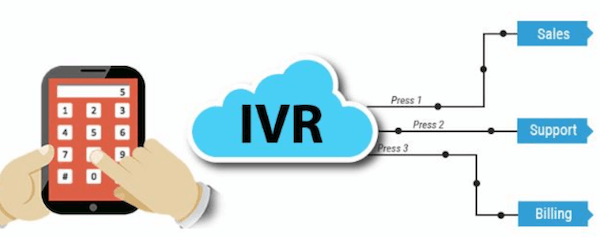The use of Interactive voice response (IVR) has become common in many organizations. The system offers an interactive opportunity between humans and computers through the tones generated by each key on the telephone keypad. The system has a dial pad to allow for segmentation, identification, and routing of callers to the appropriate agent within an organization. IVR system works on the principal of computer-telephone integration (CTI) and is called dual-tone-multi-frequency (DTMF) signals. It responds with either a pre-recorded or powerfully generated audio that directs callers on the way forward. The system is more intelligent.
How it works
The major components are a computer, telephony board, phone line, IVR software, and a DTMF. The telephony body otherwise called the telephony card helps the computer integrate the DTMF signals originating from the phone. Hook the laptop to a phone line via a telephony board and IVR software. The software is used for pre-recording greetings and laying down menu options for callers to select using their phone pad.
Advanced IVR systems come with speech recognition capabilities. In this case, a caller can use voice commands to communicate with computers. The software can understand names as well as numerous characters. Today, Majority of the advanced IVR systems use voice extensible markup language (VXML) programming language. This system is composed of Telephone network, TCP/IP network, VXML telephony server, Web/application server, and Databases. Still, the IVR systems can incorporate Text to speech software. This software is essential for organizations if they want to automate outgoing messages fully.
What can you use your IVR systems for?
The IVR system within an organization or a business has many uses. They include;
• Route calls within an organization: when a customer makes a call, the system will provide options in the form of a menu or questions concerning the request. It can answer basic questions, but in complex cases, it will reroute to appropriate specialist agents.
• Ideal for retrieving real-time information from databases: depending on the organization, an IVR system can relay simple data from the database when the user makes a call, e.g., flight schedules, registration for university classes, etc.,
• Useful for sales: the sales department can use this system for various uses. For instance, it can be a virtual brochure to highlight the services and products offered.
• High call volume: IVR systems allow organizations to handle larger call volumes because the calls are rerouted to different departments with specialist agents
• Application in the medical field where is used to transcribe medical records. Medical professionals record the records of the patients in audio form and then send them to a transcribing machine with a powerful speech to text capabilities – IVR system.
• As an electronic notification system mainly to the members of an organization who work from home.
Benefits of using an IVR system
i. First contact resolution
An IVR system allows a customer to be attended to by an agent who is well qualified to tackle the issue. ; This is because customers will be directed to such agents in appropriate departments.
ii. Increases efficiency in customer service
Agents within a company that uses IVR are qualified in the sector they are placed. They will effectively and efficiently solve issues within that area. This way they meet the specific needs of the customer. The general effect is delivery of efficient customer services.
iii. Reduce costs of operation and saves time
The IVR systems are cost-effective. To start with, they are incredibly affordable to buy and maintain it’s like a basic free chatline number to re-route the calls. Their scope of work is broad: they perform the job of receptionists, customer service agents, other agents, and managers. Remember, if you’d be using a phone, it will take much time trying to understand callers. This system allows an organization to concentrate on the most critical issues. This increases efficiency besides reducing the cost of operations.
iv. A show of professionalism
An IVR system is a mark of professionalism. This is seen from the way customers are greeted to the way they are directed to appropriate departments. Customers get the feeling of being attended to, reason being, the computerized operators give you a speedy answer. Having this system in your organization whether big or small depicts how professional a business is.
v. Elevated customer satisfaction
IVR systems are efficient in their working. They are easy to operate as well as reliable. Every customer who calls will be directed to the appropriate agent who will solve their problem. Besides, these systems operate throughout day and night. You can call any time and get your issues resolved especially on simple tasks.
For an efficient IVR system, an organization needs to have all software and hardware. It can purchase, install and run them in-house. However, there is an option to subscribe to hosting services. IVR-hosting service comes at a monthly charge. It offers an opportunity for customization of the IVR system, to fit the organization’s needs. Besides, it provides technical support.
